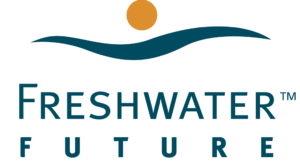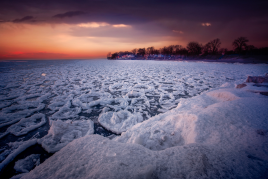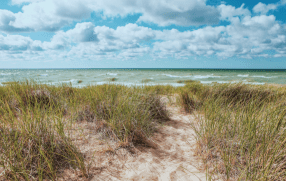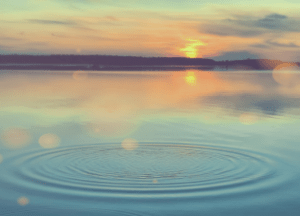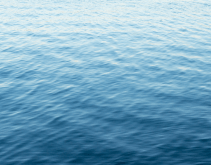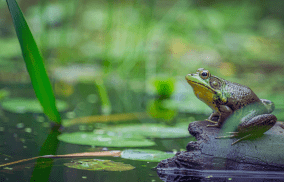Urge the U.S. EPA to Require All Water Systems to Replace Lead Pipes in 10-Years
Over the last few weeks, we shared information on the U.S. The Environmental Protection Agency’s (EPA) new draft Lead and Copper Rule, which regulates how water utilities test for, respond to and prevent lead in drinking water. One beneficial update in the rule is the requirement to replace 100% of lead water pipes in 10-years. But, like many rules, there is a loophole that allows systems with many lead service lines (like Chicago, New York, Cleveland, etc.) exception to the timeline and can even receive up to 40 years in extensions. Will you speak out and ask the EPA to close this loophole and adopt stronger protections? You can use Freshwater Future’s simple form to send comments urging the U.S. EPA to have the strongest possible Lead and Copper Rule, deadline February 5.
Great Lakes Community Members Speak Out at Lead and Copper Rule Public Hearing
Freshwater Future and several of our partners provided verbal comments to push for a stronger rule at the U.S. EPA virtual public hearing! Thanks to everyone who participated and to all of our supporters submitting comments.
Special Lake Erie Focus: This week we are focusing on our littlest great lake: Lake Erie! Find out more about Lake Erie’s weather, threats to the lake’s ecosystem and drinking water, and the people working to protect it!
Meet One of our Fall 2023 Grantees Protecting Lake Erie
In the spring and fall of each year, Freshwater Future awards project grants to grassroots organizations advocating on water issues in Great Lakes region communities. One of our fall grant recipients, Lake Erie Waterkeeper, is working to address manure overapplication by large livestock operations called Concentrated Animal Feeding Operations (CAFOs). For this work, Lake Erie Waterkeeper will be reviewing CAFO permits in the watershed.
Ontario’s Greenhouse Sector is A Fuel for Harmful Algae in Lake Erie
Harmful and toxic algal blooms in Lake Erie triggered an agreement by the Ontario, Michigan, and Ohio state and provincial governments to reduce phosphorus pollution by 40% to the lake. Unfortunately, one of the inputs of phosphorus appears to be the proliferation of vegetable and cannabis greenhouses in southwestern Ontario. A study by the local Conservation Authority found that phosphorus levels in Leamington, Ontario streams are 100 to 200 times higher than the provincial target and were more concentrated in streams with greenhouses. The provincial Ministry of the Environment, Conservation and Parks has handed out few regulatory actions for violators of environmental protection laws concerning management of nutrients in recent years. Enforcing existing regulations on agricultural operations is essential to reduce the pollution to Lake Erie.
Lake Erie News: Dynamite Dock Sighting + Seiche Study Event
This week, Toledoans witnessed a weather phenomenon called a seiche that exposed remnants of the city’s historic docks near Point Place. A seiche is when strong winds and rapid changes in atmospheric pressure push water from one end of a body of water to the other (think of a bathtub). Sustained winds on Saturday lowered Toledo’s water levels by about 9 feet and revealed the submerged remains of the “Dynamite Dock” – named after the 1884 dynamite explosion of the docks. The eastern shore of Lake Erie experienced rising lake levels, increasing vulnerability to erosion and flooding.
An event next week focuses on the Lake Erie Seiche study completed by the U.S. Army Corps of Engineers Buffalo and Detroit districts. The event will feature insights from the Lake Erie seiche study, discussing potential flooding risks and guiding informed decisions about shoreline resiliency, planning, design, and construction work. More details about the Lake Erie Seiche Study Event on January 24, 2024 from 2:00 to 3:00 pm, can be found here.
